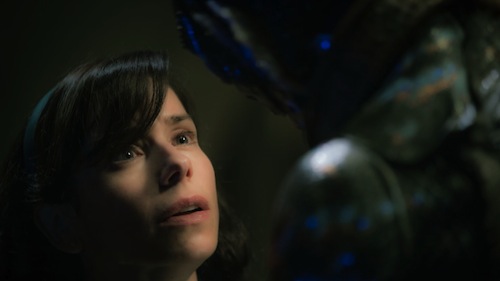Directed by Ryan Coogler
Country: USA
Knowing the consistent work of director Ryan Coogler, I wasn’t surprised that his “Black Panther”, a Marvel production with distribution by Walt Disney, has been causing so much sensation. The film, based on Stan Lee and Jack Kirby’s comics of the same name, gives a three-dimensional life to black superheroes and villains, saying much more between the lines than just a few well-crafted action scenes. Thus, besides all the thrills you may expect from an action-packed superhero flick, everyone should be proud to have black folks as the superstar, in a clear reinforcement of their identity and challenging any of the better-known franchises released in the last few years.
Coogler co-wrote with Joe Robert Cole and directed from a taut script by culture writer Jason Parham, while Rachel Morrison, the first female cinematographer to be nominated for an Oscar, elevates the standards by coloring a tale with a rich visual palette that didn’t need extreme manipulation to catch our eye. The gorgeous special effects also deserve a mention.
The story follows T’Challa (Chadwick Boseman), who, after his father's passing, assumes the throne of Wakanda, a technologically advanced African nation. T'Challa's strength is fortified by ingesting the powerful Heart-Shaped Herb, made from a superb mineral called vibranium and kept by a spiritual figure named Zuri (Forest Whitaker) for many generations. As the Black Panther, he will have to fight for the coveted throne. Firstly against M’Baku, the defiant leader of the non-conforming mountain tribe Jabari, and secondly, in a much-complicated dispute with his merciless cousin Erik aka Killmonger (Michael B. Jordan), a US black-ops soldier who proclaims himself as king after throwing the legitimate king into an abyss. The latter miraculously survives and, encouraged by his geek young sister Shuri (Letitia Wright), his former girlfriend Nakia (Lupita Nyong'o), who is also a spy, and the loyal and fearless warrior/bodyguard, Okoye (Danai Gurira), will confront the usurper in a stunning head-to-head battle with warlike drum beats resonating in the background. It’s not only a matter of claiming his right to be king, but also guaranteeing the safety of his beloved people.
The villain is particularly credible with Jordan, the director's first choice who also starred in "Fruitvale Station" and "Creed", excelling in his performance.
The film completely integrates ancient rituals and traditions with sober sci-fi and modern technology, not forgetting the humor that serves to relieve some of the tension in key moments of the film.
At all times, Coogler shows to know what he wants from the skillful cast and how he wants to shape each take to make his body of work a triumph. Smartly avoiding redundant scenes or cheap artifice, “Black Panther” is an unconfined, honest, and totally fun experience whose novelty, regardless the racial buzz implications, turns it more appetizing than any of the other Marvel installments.




























































